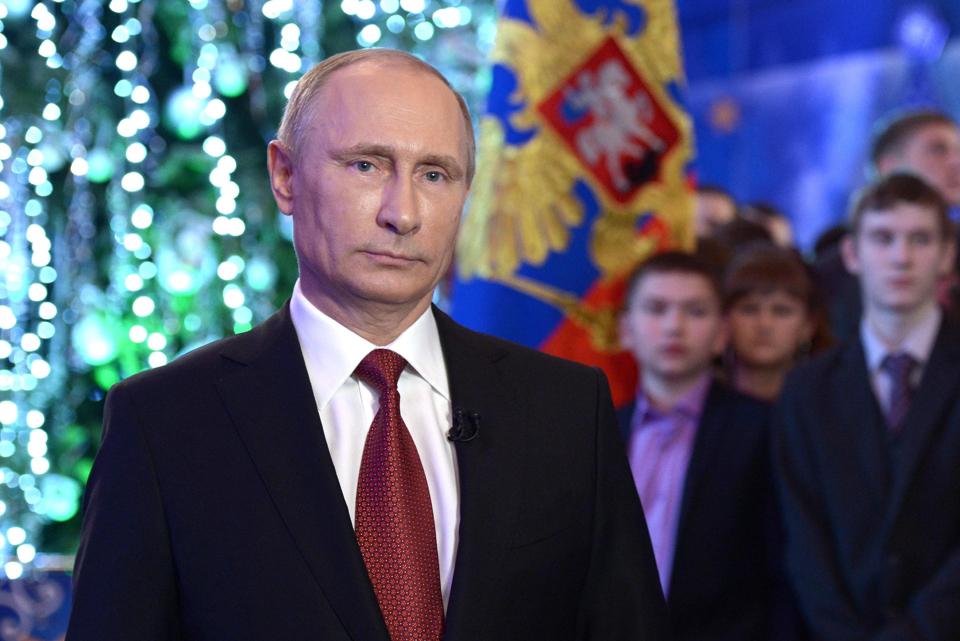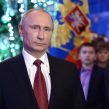
Russia Enters a Year of Post-Olympic Blues
Publication: Eurasia Daily Monitor Volume: 11 Issue: 1
By:

Seasonal festivities have been unusually subdued in Russia this year—families at every income level and of any ethnic composition are finding it difficult to forget their worries and focus on positive prospects for the coming year. One interval in the new calendar is clearly marked, however: The Winter Olympic games will happen in Sochi from February 7 to February 23. But this long-expected mega-event comes so early in the year that most of 2014 will, in fact, be spent in post-Olympic hangover. So much political attention and hectic preparations are concentrated on this spectacularly expensive project that it sets a horizon of sorts, beyond which it is hard to see a meaningful agenda—except for the inevitable reflections on whether the two weeks of sport competitions (many of which are not particularly popular in Russia) were worth the money on reproducing in Sochi the extravaganza typical for the Moscow Olympic games in 1980 (https://newtimes.ru/articles/detail/76382).
It was the war in Afghanistan that spoiled the Soviet propaganda offensive in 1980. And presently a different menace casts a shadow over the hugely expensive demonstration of Russia’s revival—and over the joy of the New Year holiday. The deadly suicide explosions in Volgograd on December 29 and 30 shocked the country, which had already seen too many terrorist attacks, and proved yet again that the smoldering civil war in the North Caucasus keeps evolving (Novaya Gazeta, January 2). The mainstream media ignored the data showing that 15 people had been killed in armed clashes in this “war zone” in the week preceding the Volgograd tragedy because it was a normal level of casualties (https://www.kavkaz-uzel.ru/articles/235993/). Every possible order-enforcement mechanism was exploited to the maximum capacity in order to deter rebels and to isolate this “theater of special operations” from the Olympic “safe haven” around Sochi, but the risk of spill-over from the critically unstable Dagestan and uncontrollable Chechnya remains disturbingly high (https://politcom.ru/16961.html). President Vladimir Putin could not make any meaningful statement on this escalating terrorism threat, but he had to alter his pre-recorded New Year’s message and pay a brief visit to Volgograd (https://echo.msk.ru/programs/personalno/1230744-echo/).
Up until that turn of events, Putin had sought to project the impression of confident hands-on leadership uniting the deeply corrupt elites and the predominantly illiberal electorate under the newly-minted slogan of “conservatism” (Nezavisimaya Gazeta, December 30). This rhetoric was supposed to justify both the tough persecution of “saboteurs” of various persuasions and the indefinite continuation of Putin’s unilateral control over Russian politics. Frequent references to Christian values in this discourse have been underpinned by the tight union between the Kremlin and the strictly hierarchic institution of the Russian Orthodox Church. Seeking to prove the moral superiority and the political power of this patrimonial construct, Putin opted for a closure in the most controversial political trials, granting amnesty for such “hooligans” as the Greenpeace activists and the Pussy Riot “blasphemers” (https://slon.ru/russia/psikhologicheskaya_lomka_putina_ili_kakoy_dorogoy_idem_tovarishchi_-1039963.xhtml). His most benevolent gesture—issuing a pardon for imprisoned former Yukos chief Mikhail Khodorkovsky—was a huge surprise but hardly made the desired impression of solid stability, particularly as Khodorkovsky argued that a continuation of the ruling regime would inevitably lead to Russia’s collapse (Novaya Gazeta, December 27).
Such predictions might appear far-fetched, particularly as Putin prepares to convert a series of foreign policy achievements, including preventing Ukraine from signing an association agreement with the European Union, into an assertive chairmanship of the G8 this year (https://www.gazeta.ru/politics/2013/12/27_a_5822317.shtml). It is the “triumph” in Syria that Putin believes to be a turning point in claiming for Russia the role of “indispensable power.” And if at the last G8 meeting in Northern Ireland he was isolated and criticized for opposing intervention, at the forthcoming Sochi summit of this “club” he expects to see more respectful attention to Russia’s position. He might be surprised, however, to discover that the plan to strengthen Russia’s influence by advancing a massive rearmament program—which has experienced many setbacks—can backfire strongly, not least in the fiasco of a new “reset” in relations between Russia and the United States, where arms control used to be the key driver (https://ej.ru/?a=note&id=24071). Iskander missiles deployed in the Kaliningrad exclave deliver a warning message to Russia’s European neighbors. But what really alarms them is Putin’s “conservatism” with its condemnation of such values as tolerance and multiculturalism (https://www.gazeta.ru/comments/column/lukyanov/5810649.shtml).
As demonstrated by Moscow’s success in the “battle for Ukraine,” which the Kremlin secured by granting Kyiv an emergency $15 billion loan and cutting the price on exported natural gas, foreign policy maneuvering needs a solid economic foundation. But 2013 revealed this economic foundation to be quickly and progressively eroding in Russia (Kommersant, December 27). The Russian economy has decelerated from feeble growth to undeniable stagnation as well as highlighted the massive outflow of capital guarantees that this trend is set to continue. The revenues from oil and gas export have started to shrink, and the “shale gas revolution” is increasingly perceived as a threat to Russia’s national security (Rossiiskaya Gazeta, December 27). The government has abandoned the attempts to implement the proposition of “modernization,” which answers neither the interests of the self-serving state corporations nor the greed of the corrupt siloviki (security forces personnel) (https://www.forbes.ru/mneniya-column/siloviki/249120-silovoi-otkat-pochemu-rossiya-legko-otkazalas-ot-medvedevskikh-reform). The stagnating economy thus becomes the main generator of discontent, adding new urgency to the demands for delivering on Putin’s generous social promises and re-energizing the divided liberal opposition (https://www.gazeta.ru/comments/column/novoprudsky/5821449.shtml).
President Putin has no trust in the economists, who keep arguing that the investment climate cannot be improved without political reforms; and he has no clue about how to overcome the economic recession, insisting in vain on a repatriation of the evacuated fortunes, thus annoying his loyal lieutenants and court oligarchs. The Olympic fanfares can distract the populace for only a few more weeks. And the stubborn Ukrainian Euro-Maidan demonstrations remind the anxious Kremlin inhabitants of the specter of revolution that so scared them two years ago. Putin’s siloviki can no longer exploit the threat of terrorism for mobilizing the masses because the challenge of radical nationalism has become too explosive. Indeed, the planned one-million strong rally in Moscow organized by Muslim communities against xenophobia and Caucasus-phobia is growing into a serious challenge for the authorities (Moskovsky Komsomolets, December 24). Khodorkovsky has expressed a firm intention to stay away from politics, but his analysis of Russia’s inherent fragility rings truer than Putin’s bragging.




